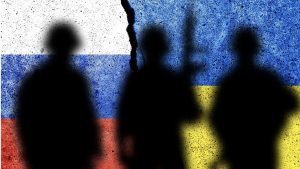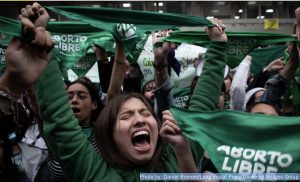FREE FLOW OF INFORMATION
A publication by the European Leadership Network
In December 2020, the ELN published a set of recommendations that came out of a series of senior expert discussions led by ELN members Sergey Rogov and Alexey Gromyko on Russia-NATO risk reduction. The recommendations addressed most of the areas of common ground so far sketched in Russian, US and NATO exchanges during the present crisis. Had those recommendations been acted upon, we might now be on a better path away from crisis.

In this new statement, signed by 75 members of the expert group including retired diplomats and military officers from the United States, Russia and Europe, we renew to all sides seven of our recommendations, updated to meet the present situation. Taken together these measures would materially contribute not just to a reduction of Russia-NATO tension but a reduction of Russia-NATO risk.
The recommendations are:
1. Regular meetings should be held between the Chief of General Staff of the Armed Forces of the Russian Federation, the Chairman of the U.S. Joint Chiefs of Staff, the NATO Supreme Allied Commander Europe (SACEUR) and the Chairman of the NATO Military Committee, reinforced by military experts, to address issues of current concern.
2. In addition, NATO member states and Russia should resume contacts at the level of military representatives in the NATO Military Committee and restore the Russian military liaison mission at SACEUR Headquarters.
3. Russia and NATO member states could agree that both sides will conduct large-scale military exercises, as a rule, at a militarily meaningful distance from their borders, but where geography prevents this then additional measures of notification, transparency and predictability must be taken. They should consider reducing the scale and frequency of military activities with respect to numbers and geography, in particular exercises near borders. Generally, military exercises should be executed responsibly, not provocatively.
4. Both sides could take initial steps in the form of parallel unilateral measures that do not necessarily require conclusion of a formal agreement between NATO, or NATO member states, and Russia, which could prove politically difficult to achieve in the present environment.
5. Russia and the United States could confirm that, irrespective of the course of the present crisis, they will systematically develop their dialogue on the future of strategic stability and cyber security as agreed at their Geneva summit in June 2021.
6. Russia and NATO could immediately agree to launch negotiations on a new zero option for the deployment in Europe of US and Russian intermediate-range land-based missiles and their launchers.
7. Russia and NATO member states could immediately agree to launch negotiations on a package of measures on the basis of the existing bilateral and multilateral agreements on prevention of incidents at sea and above the sea, and on prevention of dangerous military activities.
Read the full statement in English and Russian here.
The opinions articulated above represent the views of the author(s) and do not necessarily reflect the position of the European Leadership Network or any of its members. The ELN’s aim is to encourage debates that will help develop Europe’s capacity to address the pressing foreign, defence, and security policy challenges of our time.
Russian signatories
Name Position
1. Dmitry Danilov Head, Department of European security, Institute of Europe of the Russian Academy of Sciences (IERAS)
2. Victor Esin Colonel General (ret.), Former Head of the Main Staff of the Russian Strategic Rocket Forces, Research Professor, Centre for Advanced Studies of Russian National Security, HSE University
3. Alexandra Filippenko Senior Research Fellow, Department for Military-Political Research, Institute for the US and Canadian Studies, Russian Academy of Sciences (ISKRAN)
4. Valery Garbuzov Director, Institute for the US and Canadian Studies, Russian Academy of Sciences (ISKRAN)
5. Alexey Gromyko Director, Institute of Europe of the Russian Academy of Sciences (IERAS), Corresponding Member of the Russian Academy of Sciences
6. Evgenia Issraelian Leading Research Fellow, Department of Canadian Studies, Institute for the US and Canadian Studies, Russian Academy of Sciences (ISKRAN)
7. Igor Ivanov Minister of Foreign Affairs (1998-2004), former Secretary of the Security Council of the Russian Federation (2004-2007), President of Russian International Affairs Council (RIAC)
8. Andrey Kortunov Director General, Russian International Affairs Council
9. Oleg Krivolapov Senior Research Fellow, Department for Military-Political Research, Institute for the US and Canadian Studies, Russian Academy of Sciences (ISKRAN)
10. Valentin Kuznetsov Vice Admiral (ret.), former Chief Military Representative of the RF at NATO, Senior Research Fellow, Department for Military-Political Research, Institute for the US and Canadian Studies, Russian Academy of Sciences (ISKRAN);
11. Vladimir Lukin Russian Ambassador to the United States (1992-1994), director on the board of the Nuclear Threat Initiative (NTI), Deputy Chair of the Foreign Affairs Committee of the Federation Council of the RF
12. Alexander Nikitin Director, Center for Euro-Atlantic Security, Moscow State Institute of International Relations of the Ministry of Foreign Affairs of the Russian Federation (MGIMO), Honorary President of the Russian Association of Political Science
13. Mikhail Nosov Member of Directorate, Institute of Europe of the Russian Academy of Sciences (IERAS)
14. Sergey Oznobishev Head, Department of Military and Political Analysis and Research Projects, Primakov Institute of World Economy and International Relations (IMEMO)
15. Pavel Palazhchenko Head of Press Office, Gorbachev Foundation
16. Alexander Panov Ambassador Extraordinary and Plenipotentiary, Honored Member of the Russian Diplomatic Service, Head, Department of Diplomacy MGIMO University
17. Sergey Rogov Academic Director, Institute for the US and Canadian Studies, Russian Academy of Sciences (ISKRAN), Chairman 4 of the International Security Advisory Board of the Scientific Council at the Security Council of the Russian Federation; Member of the Russian Academy of Sciences
18. Pavel Sharikov Leading Research Fellow, Department of the European Integration, Institute of Europe of the Russian Academy of Sciences (IERAS)
19. Igor Sherbak Former First Deputy of the Permanent Representative of the RF at the United Nations, Leading Research Fellow, Institute of Europe of the Russian Academy of Sciences (IERAS)
(continued in right column)
Questions related to this article:
Where in the world can we find good leadership today?
(continued from left column)
20. Alexey Stepanov Research Fellow, Department for Military-Political Studies, Institute for the US and Canadian Studies, Russian Academy of Sciences (ISKRAN)
21. Nataliya Stepanova Research Fellow, Department for Military-Political Studies, Institute for the US and Canadian Studies, Russian Academy of Sciences (ISKRAN)
22. Alexander Usoltsev Head, International Relations Department, Russian Foundation for Basic Research (RFBR)
23. Fedor Voytolovsky Director, Primakov National Research Institute of World Economy and International Relations (IMEMO), Corresponding Member of the Russian Academy of Sciences
24. Igor Yurgens President of the All-Russian Insurance Association, Member of the Board of the Russian Union of Industrialists and Entrepreneurs
25. Andrey Zagorskiy Head, Department for Disarmament and Conflict Resolution Studies, Primakov National Research Institute for World Economy and International Relations of the Russian Academy of Sciences (IMEMO)
26. Pavel Zolotarev Major General (ret.), Leading Research Fellow, Department of Military-Political Studies, Institute for the US and Canadian Studies, Russian Academy of Sciences (ISKRAN)
European and American signatories
Name Position
27. James Acton Co-director, Nuclear Policy Program Carnegie Endowment for International Peace
28. Roy Allison Professor of Russian and Eurasian International Relations, Director, Russian and Eurasian Studies Centre, St. Anthony’s College, Oxford
29. James Bindenagel Ambassador (ret.), Henry Kissinger Professor, Center for Advanced Security, Strategy and Integration Studies Rheinische Friedrich-Wilhelms-Universität Bonn
30. Sharan Burrow General Secretary, International Trade Union Confederation
31. Richard Burt Chairman of Global Zero US, US Chief Negotiator in the Strategic Arms Reduction Talks with the former Soviet Union, former US Ambassador to Germany
32. Pierce Corden Former division chief, United States Arms Control and Disarmament Agency and research fellow at the Center for Science,Technology and Security Policy, Amer. Assoc. for the Advancement of Science 5
33. Christopher Davis Professorial Research Fellow, University of Oxford
34. Marc Finaud Head of Arms Proliferation and Diplomatic Tradecraft, Geneva Centre for Security Policy
35. Nancy Gallagher Director, Center for International and Security Studies at Maryland (CISSM)
36. Helmut W. Ganser Brigadier General (ret.), Defence Advisor to the German NATO Delegation 2004-2008, Brussels
37. Joseph Gerson President, Campaign for Peace, Disarmament & Common Security
38. Alexander Graef Research Fellow, Institute for Peace Research and Security Policy at the University of Hamburg (IFSH)
39. Thomas Graham Managing director, Kissinger Associates, Inc.
40. Thomas Greminger Director of the Geneva Centre for Security Policy (GCSP), former Secretary General of the Organization for Security and Co-operation in Europe (OSCE)
41. Sven Hirdman Ambassador to Russia 1994-2004, State Secretary Ministry of Defence of Sweden (1979-1982);
42. Jon Huntsman Former Ambassador to Russia, former Governor of Utah
43. Daryl Kimball Executive Director, Arms Control Association
44. Lawrence Korb US Navy Captain (ret.), former Assistant Secretary of Defense, Reagan Administration, Senior Research Fellow, Center for American Progress, and Senior Advisor, Defense Information Center;
45. Reinhard Krumm Director, FES Office for Peace and Security, Friedrich-EbertStiftung
46. Ruediger Luedeking Ambassador (ret), former Deputy Commissioner of the German Federal Government for Disarmament and Arms Control
47. Douglas Lute Lieutenant General (rt.), US Ambassador to NATO, 2013- 2017, Senior Fellow, Belfer Center, Harvard University
48. Jack Matlock US Ambassador to the Soviet Union (1987-1991)
49. Hanna Notte Senior Research Associate, Vienna Center for Disarmament and Non-Proliferation (VCDNP)
50. Olga Oliker PhD, Adjunct Professor, Johns Hopkins University School of Advanced International Studies
51. Janusz Onyszkiewicz Former Minister of National Defense of Poland
52. Zachary Paikin Researcher, EU Foreign Policy at the Centre for European Policy Studies (CEPS)
53. William Perry former US Secretary of Defense, Director of the Preventive Defense Project at CISAC, FSI Senior Fellow
54. Andreas Persbo Research Director, ELN
55. Nicolai Petro Professor of Political Science, University of Rhode Island
56. Thomas Pickering Former US Under Secretary of State, former Ambassador to Jordan, Nigeria, El Salvador, Israel, the United Nations, India and Russia
57. Steven Pifer Former US Ambassador to Ukraine, nonresident senior fellow at the Brookings Institution and research fellow at 6 Stanford University;
58. William Potter Sam Nunn and Richard Lugar Professor of Nonproliferation Studies, Middlebury Institute of International Studies at Monterey
59. Wolfgang Richter Colonel (ret.), Senior Military Advisor of the Permanent Representation of Germany to the OSCE, Vienna (2005– 2009); Senior Associate, International Security Division, German Institute for International and Security Affairs, Berlin (SWP)
60. Cynthia Roberts, Professor of Political Science, Hunter College, City University of New York, Senior Research Scholar, Saltzman Institute of War and Peace Studies Columbia University
61. José M Treviño Ruiz Admiral SP Navy (retired)
62. Lynn Rusten Vice President for Global Nuclear Policy, Nuclear Threat Initiative
63. Kevin Ryan Brigadier-General (ret), Senior Fellow, Harvard Kennedy School Belfer Center
64. Vladimir Senko Former Minister of Foreign Affairs of the Republic of Belarus
65. Reiner Schwalb Brigadier-General (ret), National German Representative at NATO Allied Command Transformation, Norfolk/VA, 2007- 2010; German Senior Defense Official and Attache to the Russian Federation, Moscow, 2011–2018
66. Stefano Silvestri Senior Scientifi c Advisor at Istituto Affari Internazionali (IAI), former Under Secretary of State for Defence, former President of IAI (2001-2013);
67. Graham Stacey Senior Consulting Fellow, ELN, former Chief of Staff of NATO Transformation
68. Strobe Talbott Distinguished fellow in the Foreign Policy program at the Brookings Institution, Deputy Secretary of State (1994-2001), President of the Brookings Institution (2002-2017)
69. Bruno Tertrais Deputy Director, Fondation pour la recherche stratégique (Foundation for Strategic Research, FRS)
70. Greg Thielmann Board member of the Arms Control Association, Commissioner of the U.S.-Russian-German “Deep Cuts” Project;
71. Adam Thomson Director of the European leadership network, Permanent UK representative to NATO (2014-2016)
72. Owen Tudor Deputy General Secretary, International Trade Union Confederation
73. Harlan Ullman Senior Advisor, Atlantic Council
74. Alexander Vershbow Former Assistant Secretary of Defense, former NATO Deputy Secretary General; former US Ambassador to South Korea, NATO, Russia; Distinguished Visiting Fellow at University of Pennsylvania’s Perry World House; Distinguished Fellow at the Atlantic Council.
75. Dov Zakheim Vice Chair, Foreign Policy Research Institute, Former Under Secretary of Defense 7
















